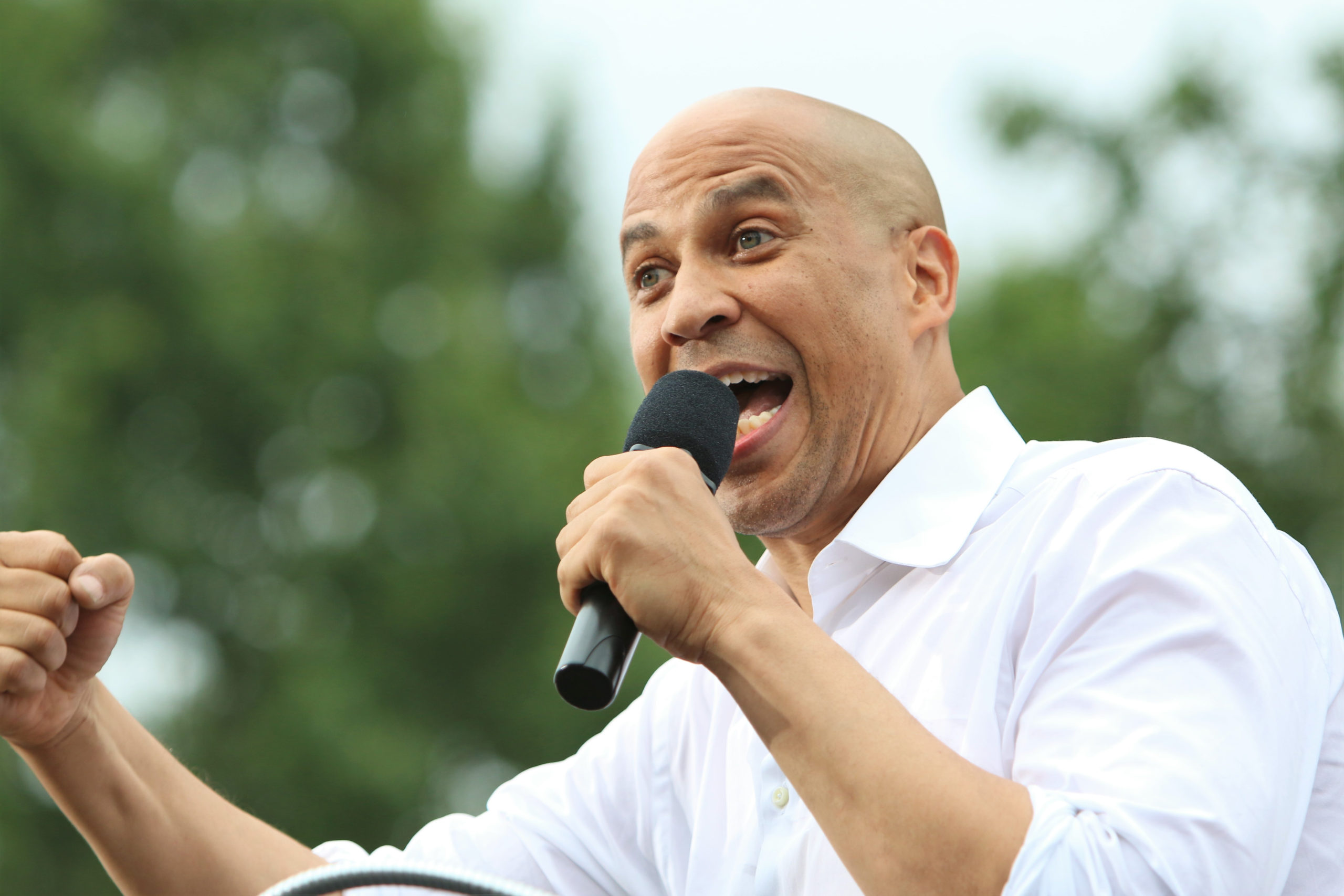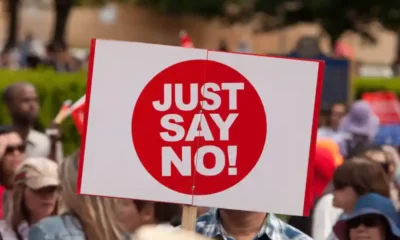Connect with us
Published
1 year agoon

Democratic New Jersey Senator Cory Booker has been a vocal proponent of legalizing cannabis on the federal level, alongside conversations promoting psychedelic reform, and he’s holding firm following this year’s elections. The senator spoke with Spotlight News’ Chat Box host David Cruz about cannabis legalization and the midterm election, saying the lame-duck session is the time to act on reform, Benzinga reports.
Republicans are just one seat away from winning a majority of the House Of Representatives, and Booker said now is the time for Democrats to act—otherwise, they might end up waiting years for another chance, whenever the Democratic Party takes Congress again.
“There’s a greater understanding on these issues—and I just have a feeling that we can get something done,” Booker said. “But the problem we have right now is the clock. There’s very little time in this lame duck and a lot of things that people want to do.”
In the lame-duck session, Democrats can use their majority positions in both chambers to act on cannabis reform, but they only have until early January. Booker also said he’s spoken with Senate Majority Leader Chuck Schumer (D-NJ) and that it will be “hard to get as much as we need to.”
Even though there are plentiful House members from states that have legalized cannabis, Booker said, “I just don’t see the Republicans wanting to advance that. So, it’s either now, or it might be years from now.”
While federal cannabis reform has been on the lips of leaders like Booker for some time, he’s been particularly optimistic about the prospect for country-wide adult-use cannabis. In October, he responded to Biden’s executive order to pardon permanent residents with simple cannabis possession offenses saying it would make a “stunning impact.”
“President Biden’s executive order is transformative for the lives of thousands of people and families harmed by our broken cannabis laws. This is a huge step forward toward a more just criminal justice system and more rational drug policy,” Booker said in a statement.
He also used the announcement to push once more to “put an end to our failed policies by legalizing and appropriately regulating cannabis, taxing cannabis, reinvesting proceeds in communities disproportionately harmed by the War on Drugs, and expunging criminal records for nonviolent drug offenses.”
Booker and Schumer, along with Senator Ron Wyden (D-OR), introduced a bill in July that would decriminalize and deschedule cannabis on a federal level. And he’s looked ahead to the lame-duck session for some time, telling NJ.com in October that he feels it is “very likely” that Congress will move forward with adult-use cannabis reform.
“Maybe it’s not the bill I wrote with Schumer and (Ron) Wyden, but an effort to tie in restorative justice and some fair banking provisions,” Booker said.
“I think it has a good chance because our Republican allies also understand that if one of the houses of Congress shifts to Republican, it will be very hard to do anything about marijuana. We’ve got a good shot. I wouldn’t say it’s a great shot, but it’s on a good path.”
Booker has also been a vocal proponent of ensuring social equity is part of the legalization model. He published an opinion piece in HuffPost earlier this year, titled “Legalize It: Why Cannabis Reform Is A Civil Rights Issue,” Booker pointed to his own experience interacting with folks who struggled to re-enter society after being convicted of low-level, nonviolent drug crimes.
“These injustices are precisely why we must ensure that restorative justice is the starting point of any cannabis reform legislation, not an afterthought,” Booker wrote.
Congressional lawmakers also held a hearing on Tuesday to discuss federal cannabis legalization and state cannabis developments. A variety of pro-reform advocates testified, discussing how decriminalizing cannabis federally would benefit a number of communities, the need for criminal justice reforms and how the federal government should approach cannabis regulations similar to alcohol.


Cresco Labs Workers Reportedly De-Unionize


Arizona Church Reaches Settlement with DEA To Allow Sacramental Use of Ayahuasca


Gov. Kathy Hochul Honors New York’s 100th Adult-Use Retail Store Opening


D.A.R.E. Officer of the Year Discusses Relative Using Medical Cannabis for Cancer


Sweden Authorities Seize 1.4 Tons of Cocaine, ‘One of the Biggest’ Seizures Ever


Uber Eats Shares ‘Dopest’ Cities With Most MJ Deliveries in British Columbia, Ontario
